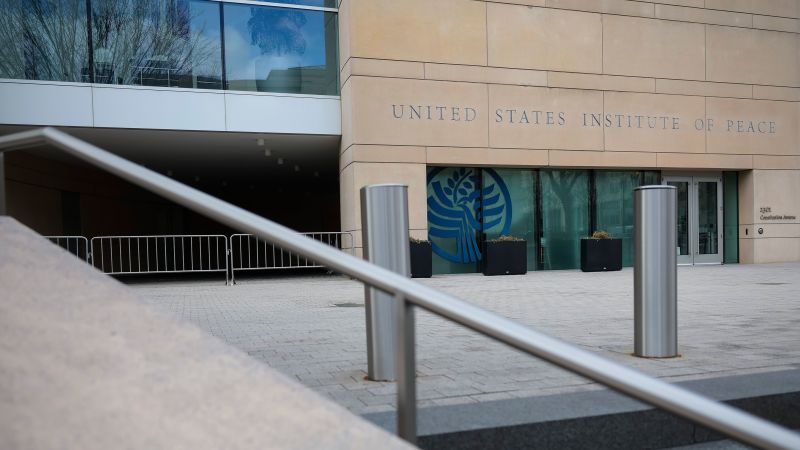US Institute of Peace Faces Mass Firings After Court Ruling

Employees at the United States Institute of Peace (USIP) have faced a second wave of mass firings, following a federal court ruling in June. According to multiple former staff members, this action was initiated by the Trump administration, escalating concerns about the future of the agency dedicated to conflict resolution.
In a statement, Liz Callihan, a former senior adviser for strategic engagement at USIP, shared that staff were informed of their termination by personnel from the Department of Government Efficiency (DOGE). Callihan noted that only a few employees were retained to handle close-out activities, marking a significant reduction in the USIP workforce. “These actions reflect a continued pattern of DOGE’s cruel indifference toward USIP’s dedicated workforce,” she said.
This recent round of firings comes after a tumultuous period for the institute. The initial wave of terminations occurred on March 28, 2023, but a federal judge later deemed those actions unlawful, ruling that the removal of the USIP board was unconstitutional. Despite this, the federal appeals court stayed that ruling in late June, enabling the current firings.
Callihan, who has been with USIP since 2012, described the emotional toll of such instability, stating that the “constant change and flux” has been “devastating.” She was part of a team brought back to rebuild operations after the first mass firings. Termination notices were sent out on the evening of July 11, 2023, with employees recalling a similar pattern from previous firings that often occurred at night. Hodei Sultan, another staff member who was part of the rebuilding team, echoed Callihan’s sentiments, labeling the situation as “really horrific.”
Sultan underscored the broader implications of these firings, suggesting they reflect a significant shift in U.S. foreign policy and credibility. “We’re completely self-isolating from the world,” she remarked, highlighting concerns that the U.S. is losing its standing as a credible partner in international relations.
The USIP, established by Congress in 1984, operates as a nonpartisan entity aimed at promoting peacebuilding efforts globally. Its work encompasses research, policy analysis, and education in conflict resolution. The recent terminations threaten to undermine these vital functions, as the institute plays a critical role in addressing violence and fostering stability in conflict-affected regions.
In tandem with the USIP firings, the State Department has also initiated a significant overhaul, resulting in the termination of more than 1,300 employees. This includes 1,107 civil service and 246 foreign service officers, who have been involved in pivotal areas such as countering violent extremism and supporting Afghan refugees following the Taliban’s takeover.
The Trump administration has faced a series of significant legal victories recently, including a Supreme Court ruling that supports its efforts to implement mass firings and reorganizations across federal agencies. This ruling has raised alarms about the potential impact on essential government functions and the workforce.
As the situation unfolds, the implications of these firings extend beyond the immediate consequences for USIP employees. They highlight a broader trend of workforce reduction within the federal government, raising questions about the future of U.S. engagement in global peacebuilding and conflict resolution efforts.






